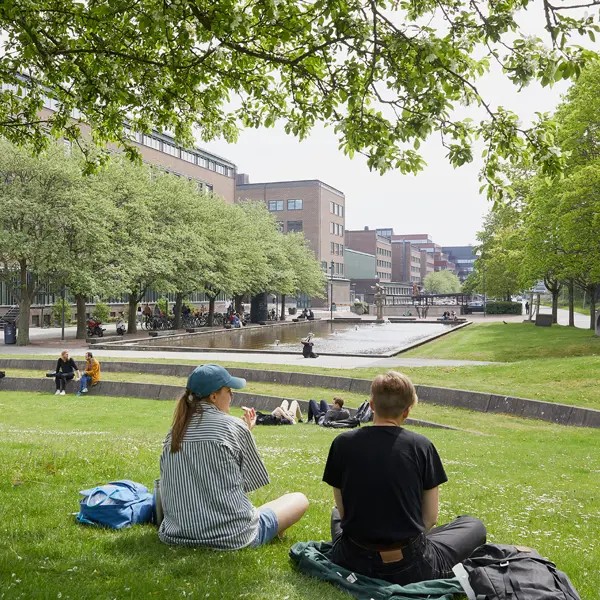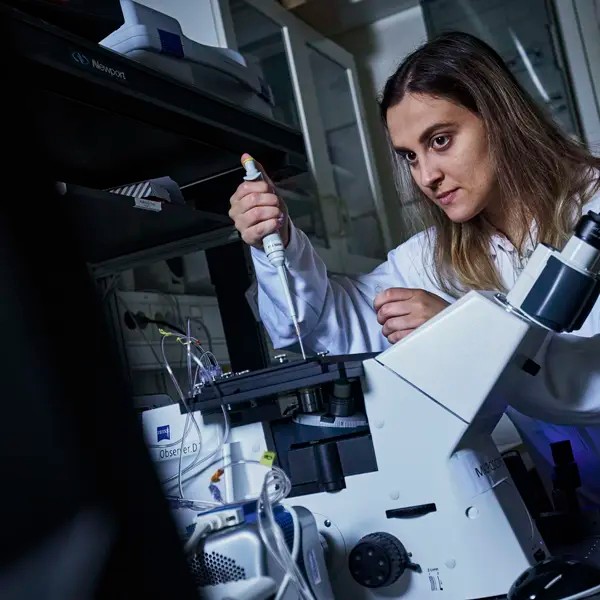
Chalmers has reached the halfway point of the ten-year gender equality initiative Genie, at the same time as the university is introducing a new Deputy President role with responsibility for equality and leadership. Since Genie’s inception, gender balance has improved and awareness of the importance of gender equality has increased – but there is still a lot of work to be done.
It is a substantial endeavour, perhaps the most significant investment in gender equality that any university has made. With the help of SEK 300 million, the Genie gender equality initiative – Gender Initiative for Excellence – aims to increase the number of female researchers at Chalmers, remove structural barriers to women’s career development and create an inclusive work environment that promotes excellence.
The initiative started in 2019 and will run for ten years. Five years on, a lot has happened, says Maria Saline, Genie coordinator, and Paul Walton, acting leader and adviser to the initiative since its inception.
“In particular, Genie has raised awareness of gender equality within academia. Now it is a subject that is discussed, pondered and understood by practically every single person as part of daily life. Many people have realised that together we can have an impact on how things are at Chalmers, and they want to make a difference,” says Maria Saline.
“Genie has completed the first part of the journey, establishing an understanding of the importance of gender equality and a basis for changing the culture. At the same time, there are also tangible statistics on the change that has taken place, which show that the proportion of women in the faculty has increased,” says Paul Walton.
Gender equality as a cornerstone of the whole organisation
Yes, the gender balance at Chalmers is improving, albeit slowly. The biggest change is in the category of assistant professors, where, after several successful recruitment processes, the balance now is closer to 50/50. Maria Saline and Paul Walton emphasise that gender equality work is a long-term process, and that cultural and attitudinal change takes time.
At the same time, Chalmers is facing a new chapter in which Genie will be transformed into less of a project and more of a cornerstone of all academic activities. The aim is to create a framework that makes gender equality principles a natural part of all processes in the organisation.
An important step in this direction is the creation of a new Deputy President position with responsibility for leadership and equality. The post has been awarded to Chalmers Professor Maria Elmquist, who started her work in January 2024.
“This is a strong statement that shows that Chalmers sees gender equality as one of the foundations for creating a world-class university,” says Maria Saline. “We know that gender equality is essential for everyone to develop and realise their full potential, and Chalmers is delivering accordingly. It is a brave thing to do. Gender equality efforts will have a more prominent place on the agenda as well as someone to monitor and support the work.”
Everyone has a responsibility for change
Both emphasise that maintaining awareness and ensuring that discussions on gender equality are kept alive are crucial elements in the work ahead. And while it is necessary for management to prioritise gender equality issues, the real change needs to take place among all university staff.
“Now Chalmers has a chance to change the culture, and it needs to be a process that is both “bottom-up” and “top-down”. Everyone has a responsibility to contribute to change, and everyone needs to reflect on their own decisions, behaviours and priorities on gender equality issues,” says Paul Walton.
They point out that it is important to continue to highlight the many studies that show a link between gender equality and quality. Genie is also developing a toolkit, which provides examples of evidence-based interventions that staff can use in their own areas. They point out that being inspired and benefiting from other organisations’ gender equality work is a good way forward.
“Genie must continue to serve as a catalyst, initiating and testing new ways of being and working. We are doing this in part by seeking collaboration, research and practical experience from other higher education institutions, to assess whether they work in a Chalmers context,” says Maria Saline.
Where will Chalmers be five years from now in terms of gender equality?
“It is my hope and belief that Chalmers will have made gender equality an “invisible issue”, in the same way as I consider that sustainability today is not an issue but an imperative. I think that is where we could be five years from now,” says Maria Saline.
Genie – a ten-year multi-million SEK project for gender equality
Genie, Gender Initiative for Excellence, aims to increase Chalmers’ excellence by creating a better gender balance and increasing the proportion of women among its researchers and teachers. Genie is supported by the Chalmers Foundation and has a budget of SEK 300 million over ten years. The project was launched on 1 January 2019, and will continue until 2028. In the beginning and four years ahead, the project was run by Pernilla Wittung Stafshede and Mary Sheeran.
Genie’s overall objectives are to:
• increase the proportion of women within the faculty,
• eliminate structural and cultural barriers that impede women’s careers,
• create a working environment that is diverse, inclusive and supportive of excellence in research and teaching.
Look at statistics from female basefunded positions at Chalmers
- Project Leader, University Executive Office, Chalmers Operations Support


